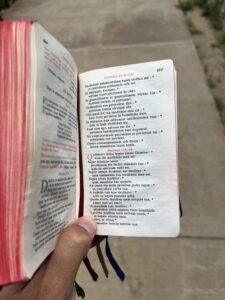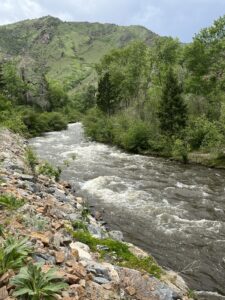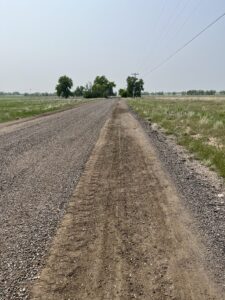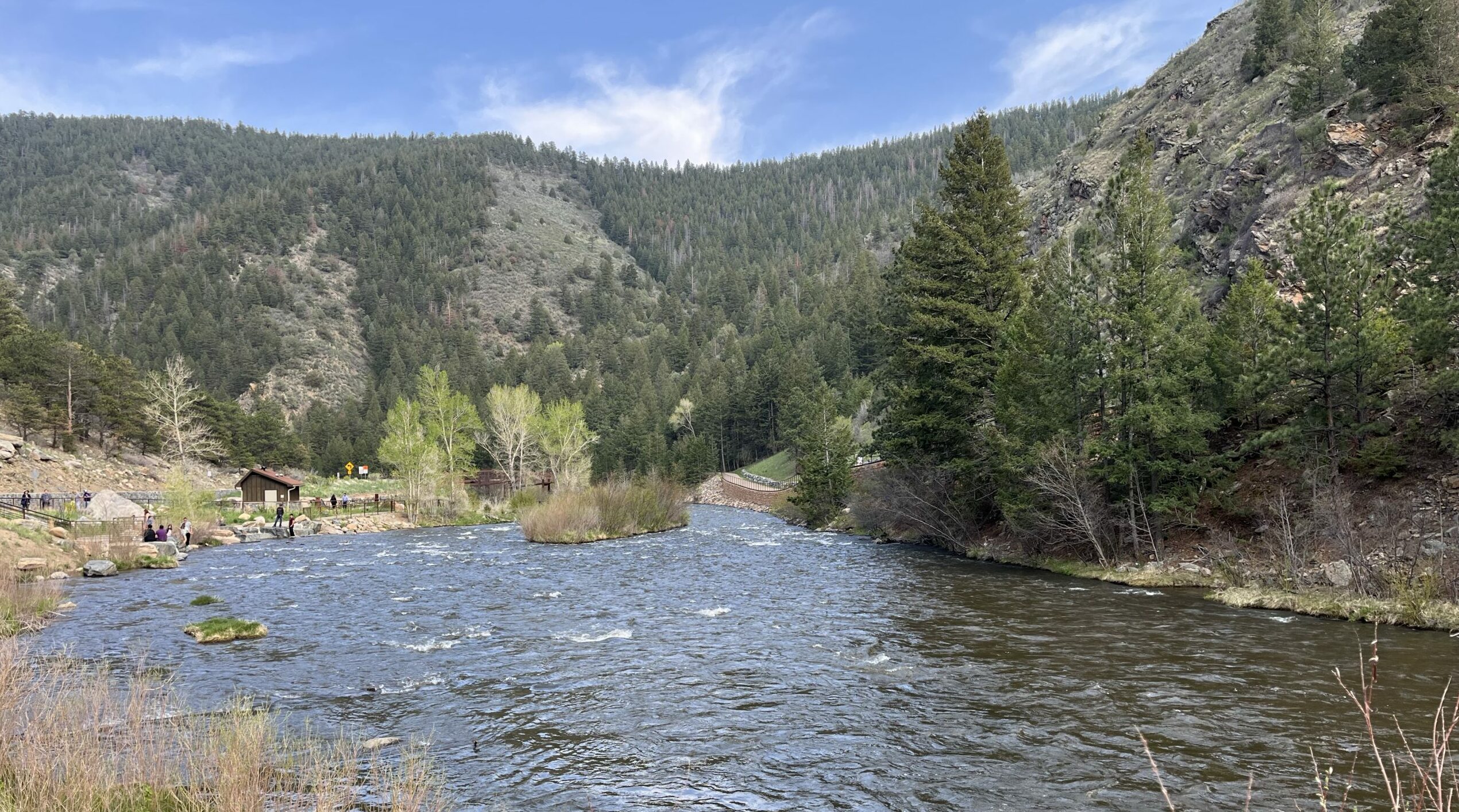If I met me, the question I would ask me is: What do you do all day? As I said on a recent podcast, the hermit-thing isn’t a total farce or lurk. I keep mornings entirely for prayer and exercise. Doing the old Divine Office means a few hours of Psalms in Latin every day. Perhaps because I didn’t learn the old Roman Breviary in seminary (for we did the Liturgy of the Hours—something we traditionalists now call the Liturgy of the Minutes—since it is so short!) I didn’t carve enough time out of my day at the beginning of my religious life for both several hours of prayer and daily exercise. Or perhaps I just get cabin fever in my condo-hermitage.

Either way, I go walking and praying as one event most days. A large part of my day is praying the Latin Psalms while walking. (I posted the above picture on Facebook and someone noticed how tan my hand was. That’s just because I’m always outside walking while praying the Roman Breviary.) Praying all 150 Psalms a week in Latin, you get pretty good at memorizing the Psalms, or at least knowing the basics of what is coming in a Psalm, if you have to look down to keep from tripping.

![]()
![]() The old Divine Office has eight canonical hours every day. I often anticipate Matins (the first and longest of the canonical hours during) the night before. Then, my pocket Diurnal (a 14cm book of the Roman Breviary containing 7 canonical hours for 365 days a year) can carry me through the whole day. A canonical hour is not a full hour, usually only 10 minutes. These several sets of Psalms through the day can be done anywhere where one can pray devoutly and attentively as the Latin at the front says. Therefore, I can find new places in Colorado to walk while praying the Psalms, such as the above picture. I always pray some of my Divine Office for my benefactors. Also in my daily prayer list is the unborn, the trafficked, the dead, and the Triumph of the Immaculate Heart of Mary in the Catholic Church at-large.
The old Divine Office has eight canonical hours every day. I often anticipate Matins (the first and longest of the canonical hours during) the night before. Then, my pocket Diurnal (a 14cm book of the Roman Breviary containing 7 canonical hours for 365 days a year) can carry me through the whole day. A canonical hour is not a full hour, usually only 10 minutes. These several sets of Psalms through the day can be done anywhere where one can pray devoutly and attentively as the Latin at the front says. Therefore, I can find new places in Colorado to walk while praying the Psalms, such as the above picture. I always pray some of my Divine Office for my benefactors. Also in my daily prayer list is the unborn, the trafficked, the dead, and the Triumph of the Immaculate Heart of Mary in the Catholic Church at-large.

The pathway near my hermitage upon which I have tread hundreds of hours with my Divine Office (Psalms.)
![]() This also seems to fulfill a theme of my life that I did not choose for myself: A monk-missionary being in an odd mix of “Peregrino” and “Hermitage.” Obviously, those two words are also the name of the charity I run. We all have a life in pilgrimage, for we have not here a lasting city (Heb 13:14) but still here below we see Jesus passing on His way (Luke 4:30.)
This also seems to fulfill a theme of my life that I did not choose for myself: A monk-missionary being in an odd mix of “Peregrino” and “Hermitage.” Obviously, those two words are also the name of the charity I run. We all have a life in pilgrimage, for we have not here a lasting city (Heb 13:14) but still here below we see Jesus passing on His way (Luke 4:30.)
